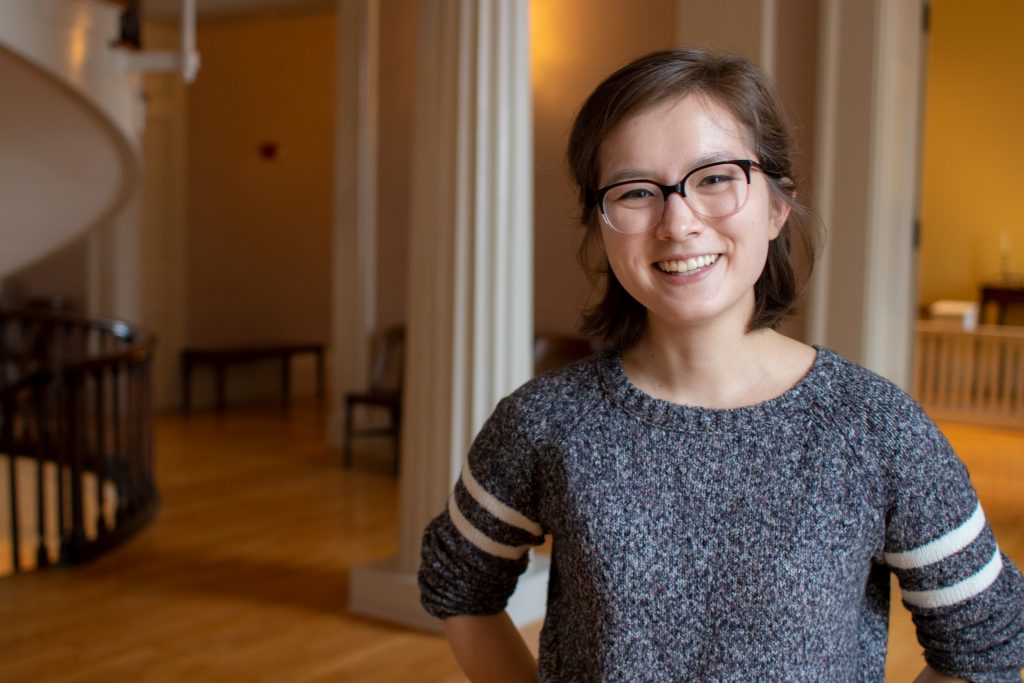As a recent University of Iowa graduate, Anya Kim will take her Fulbright Study/Research Award to Barcelona, Spain, where she will continue her “life work” of discovering just exactly how the brain functions.
With bachelor’s degrees in biology (neurobiology track) and Spanish, as well as a certificate in clinical and translational science, Kim has acquired the skills needed to be successful in her future. But she does not intend to stop there.
“I will be deferring medical school for a year in order to embark on this Fulbright, but once I return, I will begin the M.D.-Ph.D. program at Johns Hopkins,” she said.
The program will take eight years to complete but will allow Kim the opportunity to both conduct research as well as work with patients.
Kim has spent her undergraduate years as a Hawkeye getting her feet wet in the field of neurobiology, focusing specifically on the microglia of the brain.
“There are a lot of really cool diseases that affect how the brain wires itself, such as Huntington’s, autism, and schizophrenia,” she said. “Many of the problems with these are in the actual circuits of the brain, and I think that’s really interesting, especially because we are starting to see how the immune cells in the brain might be able to shape the circuits.”
Having completed research and conducted her own experiments in a lab during her four years at the UI, worked as a Latham Fellow, as well as interned at the Harvard Medical School under her hero and MacArthur genius-award recipient Beth Stevens, Kim has found her calling in life. However, she is hesitant to say she wishes to cure the diseases of the brain.
“There are so many things about the brain that we just fundamentally don’t comprehend,” Kim said. “We don’t understand how a lot of these diseases progress. To come up with treatments, you have to understand the brain a lot better. Finding a cure is a tricky concept, but the main goal is to develop a better understanding. My research may lead to a cure one day, but we’ll see.”
Kelly Thornburg, the director of scholar development for the UI Honors Program, has become close with Kim over the years as they worked on scholarship applications together.
“Anya has really learned to trust herself, finding research that was incredibly valuable to her — and us — on a variety of different levels. That’s kind of magic,” Thornburg said. “I believe Anya is truly an advocate for the microglia that she so cares about … I honestly envision her as a hero with a cape.”
Although Kim is on her way to making great strides in the world of neurobiology, she knows that the Fulbright is much more than just something to put on a résumé.



